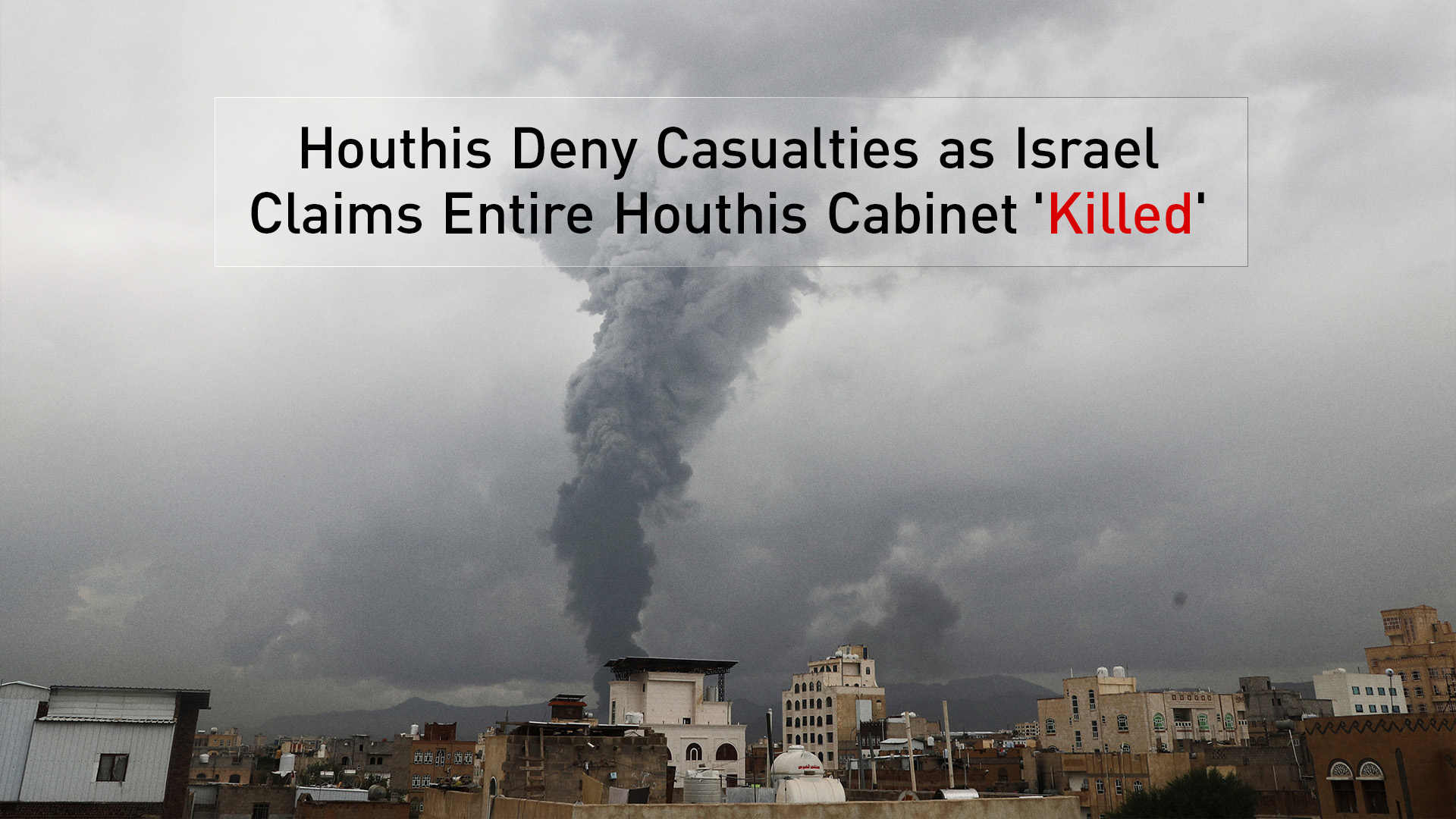Entire Houthi Cabinet Members Likely Killed in Israeli Strikes
The Israeli military assesses that its Thursday strikes in Yemen likely killed the entire Houthi cabinet, the Times of Israel reports. The IDF is working to confirm the results of the operation, which the Houthis deny targeted any of their members.

ERBIL (Kurdistan24) – In what could represent a devastating blow to the leadership of the Iran-backed Houthi movement, the Israel Defense Forces (IDF) assesses that the group's entire cabinet was likely killed during major strikes in Yemen on Thursday, the Times of Israel reported on Friday. The potential targets included the Houthi prime minister and 12 other ministers, marking a significant escalation in the ongoing regional conflict.
According to the Times of Israel, which cited Israel's Channel 12 news, the IDF's assessment was not yet definitive as of Friday, and the military was actively working to obtain a clearer understanding of the operation's results.
This development came alongside separate reports from within Yemen. The Al-Jumhuriya channel and the Aden Al-Ghad newspaper both reported that Houthi Prime Minister Ahmed al-Rahawi had been killed in an Israeli attack on an apartment in the capital, Sanaa.
The Aden Al-Ghad report added that several of al-Rahawi's companions were also killed in the strike.
The Times of Israel noted that this appeared to be a separate incident from another strike that reportedly targeted 10 senior Houthi ministers as they gathered outside the capital to listen to a speech by their leader, Abdul Malik al-Houthi.
The IDF officially confirmed on Friday that the Houthi defense minister, Muhammad Nasser al-Attafi, and chief of staff, Muhammad Al-Ghamari, were specific targets in that attack.
As of Friday afternoon, the Israeli military was still awaiting confirmation of the outcome. Channel 12 reported that the two top military officials were en route to the cabinet meeting and were believed to be at the site when it was struck.
While the full results of the attack remain to be determined, the Times of Israel conveyed a sense of optimism from Israeli sources.
Political sources cited by Channel 13 news on Thursday claimed that "the direction is positive, it seems the attack succeeded." Furthermore, the Ynet news site reported that "there is growing assessment that the entire Houthi military and governmental elite were eliminated in the attack."
At a situational assessment on Friday, IDF Chief of Staff Lt. Gen. Eyal Zamir commented on the ongoing operations.
"The Houthis operate as an additional terrorist branch of Iran, continue to attack Israel, and threaten regional and international stability. Our message is clear — there will be no tolerance," he stated, as quoted in the Times of Israel.
The IDF said the strike was enabled by real-time Israeli intelligence on the gathering and was carried out despite the presence of heavy air defenses.
Reports mentioned by the Times of Israel also indicated that Israel monitored Abdul Malik al-Houthi's address as it unfolded but noted he gave no indication of being aware that his senior officials were being targeted.
In a direct contradiction to the Israeli claims, a source from the Houthi defense ministry denied that any members of the group had been targeted.
The source, cited by the Times of Israel, insisted that Israel was attacking "civilian targets and the Yemeni people because of their positions supporting Gaza."
Since the outbreak of the Gaza war in October 2023, the Houthis have repeatedly launched missiles and drones at Israel, framing their actions as solidarity with the Palestinian people. While most of these attacks have been intercepted, they have triggered successive waves of Israeli retaliation inside Yemen.
The Houthis have also extended their campaign beyond Israel’s borders, targeting commercial vessels in the Red Sea and the Gulf of Aden, often claiming the ships were linked to Israel.
In January 2024, after the United States and Britain launched military operations to protect Red Sea shipping lanes, the Houthis expanded their attacks to include Western-linked vessels. The escalation prompted weeks of heavy U.S. strikes, which only subsided following a ceasefire agreement between Washington and the Houthis in May.
Despite that truce, the Houthis have vowed to continue targeting Israeli ships in regional waters.
